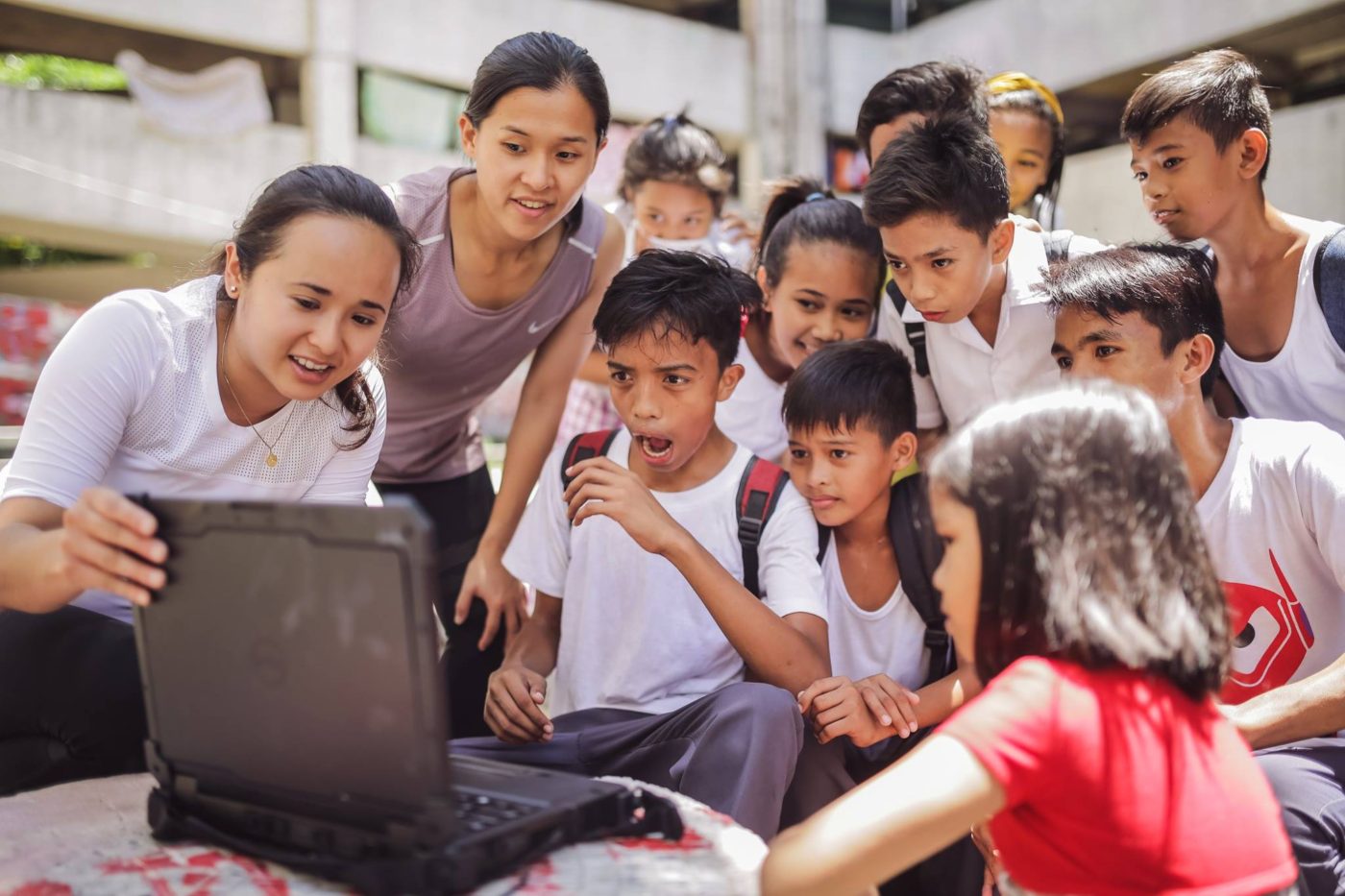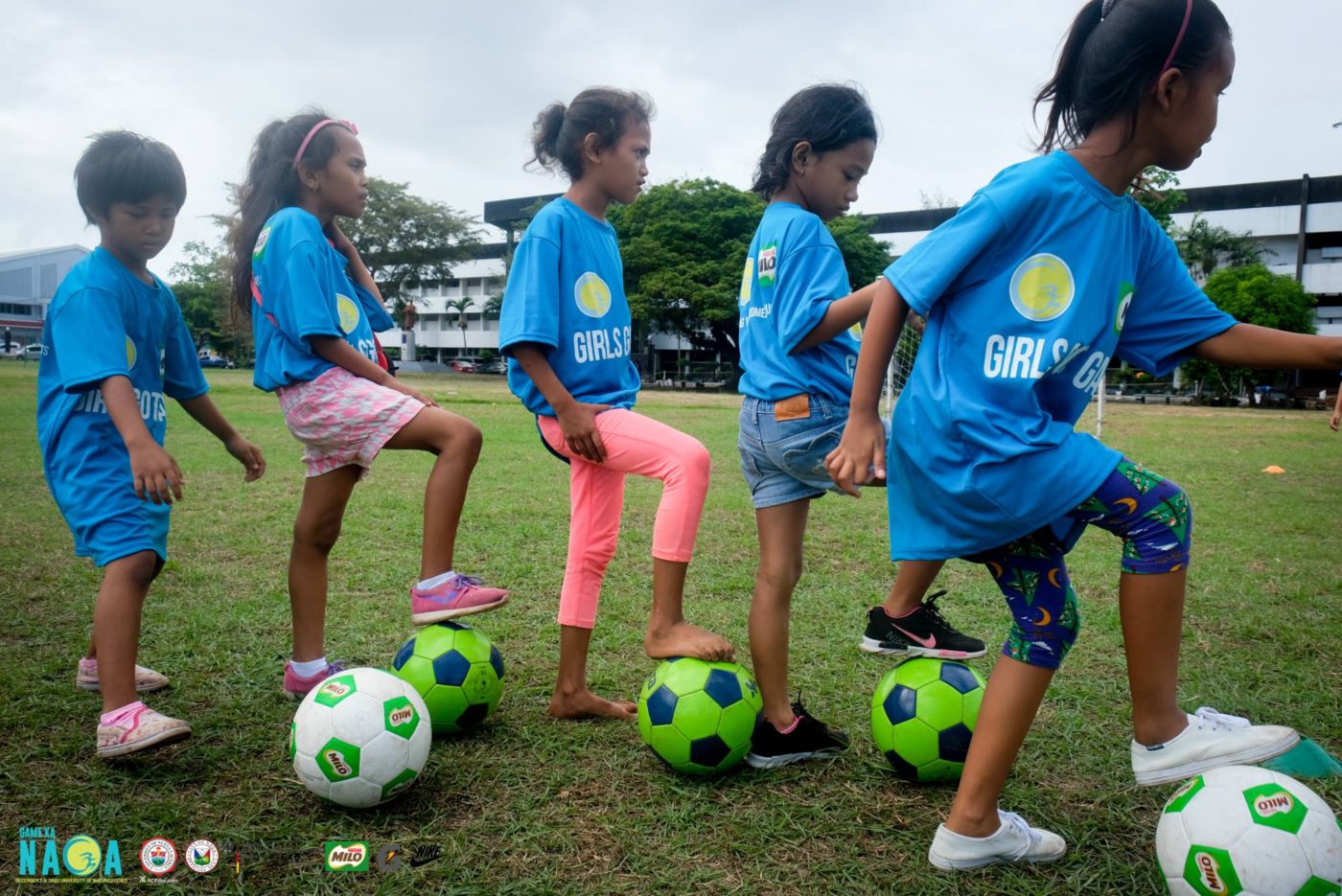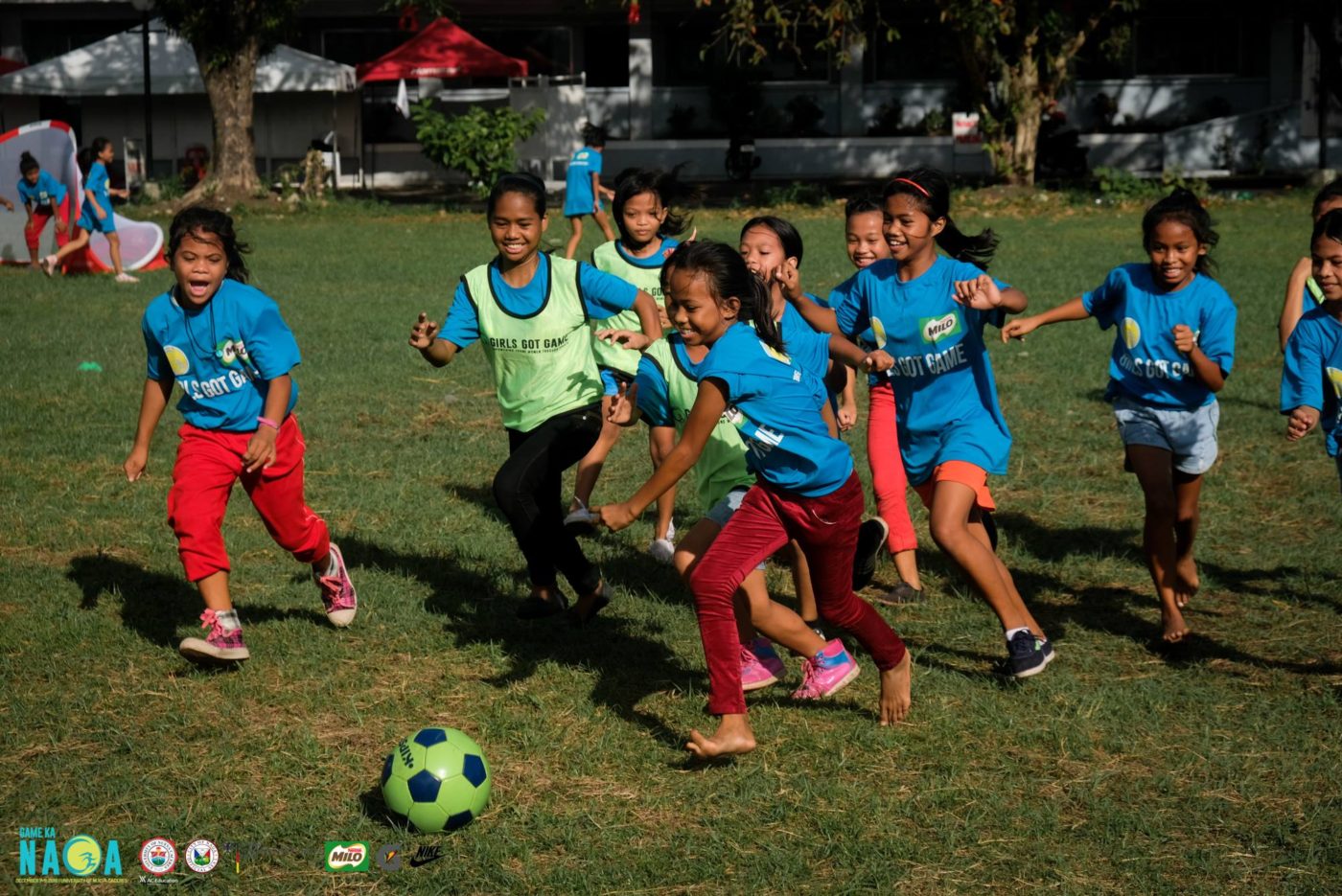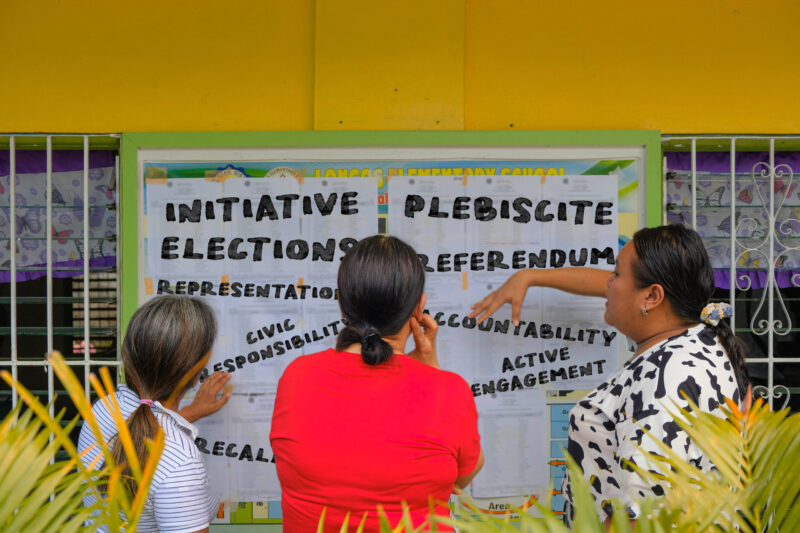OVER THE years, girls in underprivileged communities have struggled to find opportunities that help alleviate their socioeconomic conditions. To mitigate this problem, former Ateneo Lady Eagles Krizanne Ty and Nikka Arcilla launched Girls Got Game Philippines (GGG) in 2015. The non-profit organization seeks to equip girls aged 10 to 12 years old with discipline and athletic skills through roving training camps for basketball, football, rugby, and volleyball.
Raising of the pillars

Primarily intended to hone and strengthen the character of young girls through sports, GGG finds its roots in the athletic and personal experiences of its founders. With exposure to sports since their youth and corporate careers after college, Ty and Arcilla were able to recognize the positive impacts of sports in life beyond basketball courts and football fields.
Once a track and field specialist in her collegiate years, Arcilla decided to focus on her job in marketing feminine care brands for the youth segment, which involved extensive research on teenage pregnancy. Alarmed by the increasing number of young mothers, she was determined to offer a solution to the problem through sports, knowing how her own athletic experiences aided her in real-life decision-making. Moreover, Arcilla also found inspiration from the Nike Foundation’s “Girl Effect,” a movement that seeks to unleash the potential of adolescent girls through media programs that serve as safe spaces for confidence-building.
With the goal of creating an avenue for girls to grow, Arcilla combined these concepts to craft a sports program that would help girls recognize their capability to manage their own lives. “It is at that age where they menstruate, so if you kind of intercept and get them exposed to better things, then they can start to turn their lives around. That’s why when you look at all the camps in GGG, they’re very focused on the 10 to 12-year old girls,” she said.
Needing a partner who could execute her vision, Arcilla sought out Ty for her background as an athlete and organizational command to help set up the sports camps. “I knew that if this GGG thing were to happen, it would have to be with someone who’s really good at executing, someone who really understands how sports works. So that’s why I approached Krizanne [Ty],” she added.
As Ty was experienced in organizing fitness bazaars, she unhesitatingly supported the venture on GGG. At that time, she was also looking for ways to give back to the sports community.
In 2014, the two began laying the groundwork for the organization by pitching the concept of the roving sports camp through Facebook, where 40 people immediately showed interest. Backed by Ty’s execution prowess and Arcilla’s marketing and finance knowledge, the two were able to establish GGG’s necessary structures and partnerships by the following year. Having established a proficient and stable management team, GGG continues to operate until today, sending volunteers to visit possible campsites in underprivileged communities through the help of local authorities.
With each camp run by around 10 coaches to cater to about 100 girls, GGG’s events typically feature two parts: An inspirational talk from an invited female guest speaker and a two-day period for four different team-based sports—basketball, football, rugby, and volleyball. Throughout the two days, every participant gets to experience each sport with the goal of developing their characteristics like flexibility and determination.
Aspiring to create far-reaching change, GGG has been living out its mission to produce young, strong-minded girls committed to bettering their lives after their time at the sports camps.
Delivering the promise

Since GGG’s pilot camp in 2015, the organization has successfully conducted over 23 sports camps with over 2,500 participants nationwide. Since every camp’s iteration is composed of an entirely new roster of kids, GGG has come across a number of diverse campers. While all camps are special in their own regard, some campers’ stories have managed to truly embody GGG and its mission of empowerment.
One memorable instance for Ty and Arcilla involved a 10-year old girl who suddenly burst into tears during a media interview. Unaware of what prompted the outburst, Ty and Arcilla eventually found out that the camper wanted to be with her dad again who was an overseas Filipino worker at that time. Inspired by the lessons she learned through GGG, the young camper became inspired to pursue a football scholarship and eventually, a professional football career. Her hope was to use football as a means to improve her and her father’s livelihood, which could eventually lead to a reunion.
“[The young girl’s experience] really validated what we do at GGG and why we do it. Seeing as how this girl was greatly affected by the football portion of the camp, I can only imagine what we can do by rolling out longer term programs,” Ty reflected.
However, beyond simply setting up more sports camps, GGG has also established itself as the go-to organization for women empowerment through sports in the country, especially at a grassroots level. “The brand is so strong that any partner who wants to get into women empowerment comes and seeks to work with us. We created a strong brand with a strong advocacy wherein people now know who to go to,” Ty shared.
Unfortunately, as GGG prepared to further expand its operations, the COVID-19 pandemic forced the organization to seek out alternatives with sports camps no longer being a viable option. Given this, GGG is taking steps to ensure that its organization can continue to make a positive through other avenues.
An enduring mission
In a bid to cope with the quarantine restrictions, GGG transitioned to the online setting in July 2020 by releasing an e-learning series that featured modules on rugby, football, volleyball, and basketball. Simultaneously, GGG is utilizing this time to become more financially stable by partnering with Game On Sports, a for-profit organization that focuses on nurturing kids’ love for sports at an early age. The money earned from any Game On Sports initiatives are donated and funneled to GGG operations.
Furthermore, the readjustment period has also allowed GGG to explore different approaches to improve its operations by introducing statistics and data analytics techniques to measure the organization’s impact on their campers’ lives. “We want to initiate a pilot [set of girls] where we will rigorously track and measure impact [on their lives] so that ultimately, we can come back to our partners [and] stakeholders and say, yes, sports does help girls in low income situations,” Arcilla shared.
While the COVID-19 pandemic has limited the regular operations of the sports camps, GGG remains fully committed to their mission of empowering and inspiring young Filipinas through sports. Just like with the 10-year old camper who dreamt of reuniting with her father, GGG aims to replicate such impact by continuing to focus on one camp and one community at a time.







